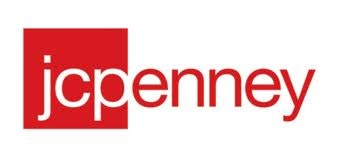Almost as soon as Pershing Square’s Bill Ackman abandoned his position in J.C. Penney Company, Inc. (NYSE:JCP), two other big players jumped in–Glenview Capital Management and J. Kyle Bass’ Hayman Capital Management.
They joined George Soros’ Soros Fund Management and Perry Capital as the biggest shareholders in the company. Among them the four groups hold a little over 70 million shares, almost one third of the 220 million shares outstanding.
Are they crazy? Or do they know something we don’t?
What They Know
What these four know is a bargain, in conventional retail stock terms. At its current market cap of just $3 billion, J.C. Penney Company, Inc. (NYSE:JCP) is selling for less than 33 cents for each dollar of sales, even at its current sales run rates. These rates are down 35% from 2011, when former CEO Ron Johnson of Apple fame began his ill-fated reign under Ackman’s sponsorship.
While the company hasn’t made money in over a year, the quarter ending in August, with some time post-Johnson on the books, showed a little bit of progress, with losses down nearly one third from the nearly $750 million lost during the crucial Christmas season of last year. Sales were also up, slightly, from the quarter before, an indication that some J.C. Penney Company, Inc. (NYSE:JCP) shoppers may be coming back.
The balance sheet remains in pretty bad, showing nearly 50 cents in debt for each dollar of assets. But returning CEO Mike Ullman has performed some miracles on the cash flow front, using $2.7 billion in new debt financing to make the company cash flow positive again.
Ullman also brought in an experienced marketer Debra Berman from Kraft, to bring back the brand’s old message. Penney remains a fixture in many American malls, and just two years ago had sales of $17 billion. The company is pushing discounts again to bring people into those stores, and Berman’s main task will be to bring back sales in home furnishings, once a mainstay of the company but now a disaster.
In other words, if J.C. Penney Company, Inc. (NYSE:JCP)’s just gets back to where it was when Ullman left it, the new investors will have some major gains.
The Alternatives
Compared with Penney, other retail stocks are fully priced. Kohl’s Corporation (NYSE:KSS) may be among the best competitors, as it sells much of the same merchandise. The company has a market cap of about $11.7 billion on about $19 billion in sales, meaning you’re paying $1 for each 60 cents of revenue.
Kohl’s Corporation (NYSE:KSS) uses out-parcel locations for its stores, not the malls Penney uses. It consistently brings 10 cents on each sale down to the bottom line, and its balance sheet shows about 30 cents in debt for each $1 in assets. Kohl’s sports a Price/Earnings multiple of 12.4, close to the market averages – Penney’s is operating at a loss – and offers investors a yield of 2.65%. Trouble is, the stock has gone sideways for over a year, up only 3%. It’s a nice, safe investment, but won’t make you a lot of money.






